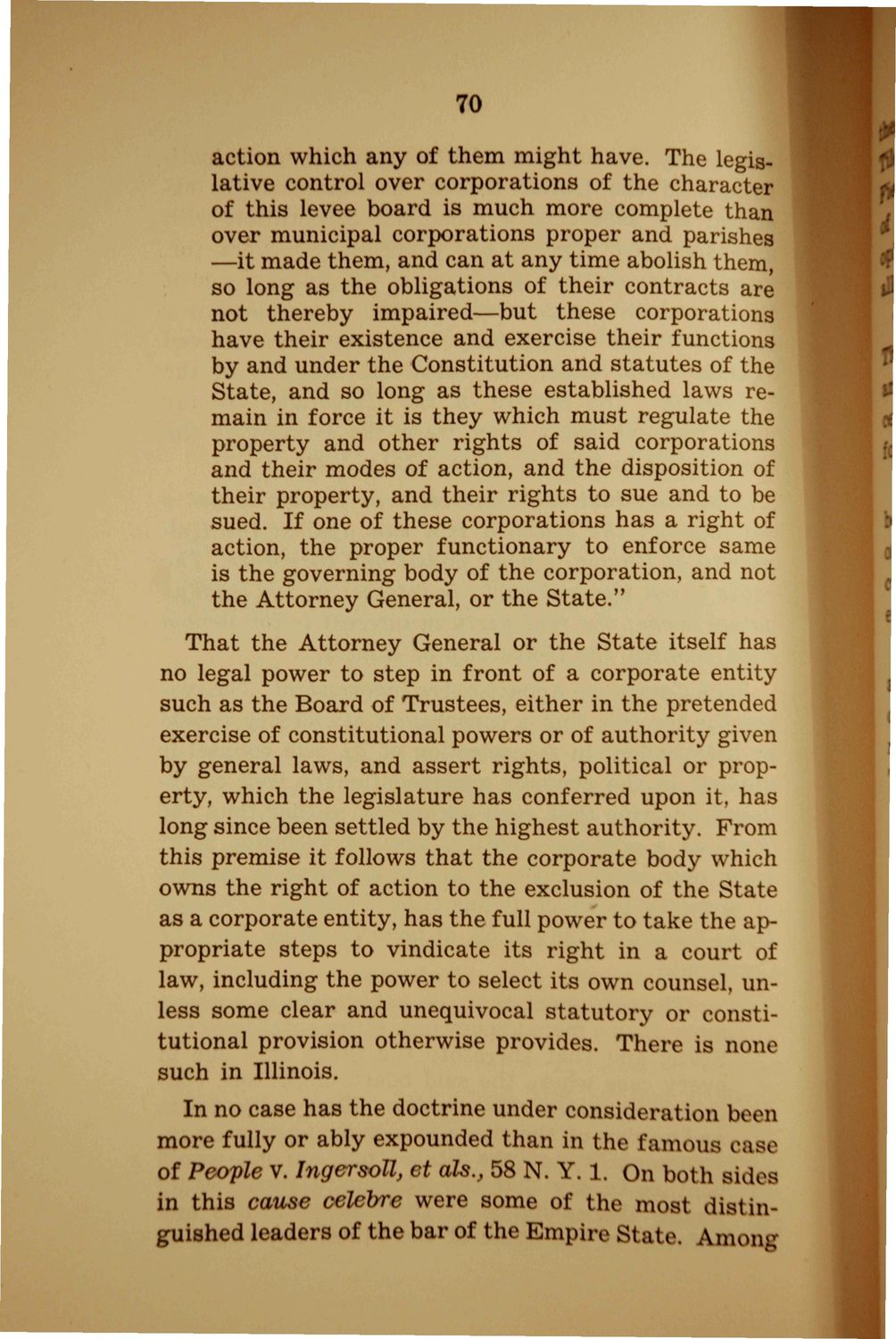| |
| |
Caption: Booklet - UI Charter of Freedom (1942)
This is a reduced-resolution page image for fast online browsing.

EXTRACTED TEXT FROM PAGE:
70 action which any of them might have. The legislative control over corporations of the character of this levee board is much more complete than over municipal corporations proper and parishes —it made them, and can at any time abolish them, so long as the obligations of their contracts are not thereby impaired—but these corporations have their existence and exercise their functions by and under the Constitution and statutes of the State, and so long as these established laws remain in force it is they which must regulate the property and other rights of said corporations and their modes of action, and the disposition of their property, and their rights to sue and to be sued. If one of these corporations has a right of action, the proper functionary to enforce same is the governing body of the corporation, and not the Attorney General, or the State.'' That the Attorney General or the State itself has no legal power to step in front of a corporate entity such as the Board of Trustees, either in the pretended exercise of constitutional powers or of authority given by general laws, and assert rights, political or property, which the legislature has conferred upon it, has long since been settled by the highest authority. From this premise it follows that the corporate body which owns the right of action to the exclusion of the State as a corporate entity, has the full power to take the appropriate steps to vindicate its right in a court of law, including the power to select its own counsel unless some clear and unequivocal statutory or constitutional provision otherwise provides. There is none such in Illinois. In no case has the doctrine under consideration been more fully or ably expounded than in the famous case of People v. Ingersoll, et als., 58 N. Y. 1. On both sides in this cause celebre were some of the most distinguished leaders of the bar of the Empire State. Among
| |